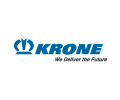The European Commission has fined Scania €880 million for participating in a trucks cartel. The European Commission has found that Scania broke EU antitrust rules. It colluded for 14 years with five other truck manufacturers on truck pricing and on passing on the costs of new technologies to meet stricter emission rules.
In July 2016, the Commission reached a settlement decision concerning the trucks cartel with MAN, DAF, Daimler, Iveco and Volvo/Renault. Scania decided not to settle this cartel case with the Commission, unlike the other five participants in the trucks cartel. As a result, the Commission’s investigation against Scania was carried out under the standard cartel procedure.
Commissioner for Competition, Margrethe Vestager, said: “Today’s decision marks the end of our investigation into a very long lasting cartel – 14 years. This cartel affected very substantial numbers of road hauliers in Europe, since Scania and the other truck manufacturers in the cartel produce more than 9 out of every 10 medium and heavy trucks sold in Europe. These trucks account for around three quarters of inland transport of goods in Europe and play a vital role in the European economy. Instead of colluding on pricing, the truck manufacturers should have been competing against each other – also on environmental improvements.”
Road haulage is an essential part of the European transport sector and its competitiveness depends on truck prices. The decision relates specifically to the market for the manufacturing of medium (weighing between 6 to 16 tons) and heavy trucks (weighing over 16 tons).
The Commission’s investigation revealed that Scania, as a producer of heavy trucks, had engaged in a cartel relating to:
coordinating prices at “gross list” level for medium and heavy trucks in the European Economic Area (EEA). The “gross list” price level relates to the factory price of trucks, as set by each manufacturer. Generally, these gross list prices are the basis for pricing in the trucks industry. The final price paid by buyers is then based on further adjustments, done at national and local level, to these gross list prices.
the timing for the introduction of emission technologies for medium and heavy trucks to comply with the increasingly strict European emissions standards (from Euro III through to the currently applicable Euro VI)
the passing on to customers of the costs for the emissions technologies required to comply with the increasingly strict European emissions standards (from Euro III through to the currently applicable Euro VI).
The infringement covered the entire EEA and lasted 14 years, from 1997 until 2011, when the Commission carried out unannounced inspections of the firms. Between 1997 and 2004, meetings were held at senior manager level, sometimes at the margins of trade fairs or other events. This was complemented by phone conversations. From 2004 onwards, the cartel was organised via the truck producers’ German subsidiaries, with participants generally exchanging information electronically.
Over the 14 years the discussions between the companies covered the same topics, namely the respective “gross list” price increases, timing for the introduction of new emissions technologies and the passing on to customers of the costs for the emissions technologies.
Emissions standards compliance
The collusion identified by the Commission concerned the new emission technologies required by the Euro III to Euro VI environmental standards, specifically coordination on timing and coordination on passing on of costs of emission technologies for trucks compliant with newly introduced emissions standards. The collusion was not aimed at avoiding or manipulating compliance with the new emission standards.
The Commission’s investigation did not reveal any links between this cartel and allegations or practices on circumventing the anti-pollution system of certain vehicles (commonly referred to as “defeat devices”).
Today’s decision underlines the importance of a functioning competitive market to foster the development and dissemination of cost-efficient low-emission technologies, which is one of the elements of the upcoming European Strategy for low-emission mobility.
Fines
The fines were set on the basis of the Commission’s 2006 Guidelines on fines (see press release and MEMO).
In setting the level of fines, the Commission took into account Scania’s sales of heavy trucks in the EEA, as well as the serious nature of the infringement, the high combined market share of all participating companies, the geographic scope and the duration of the cartel.
Scania chose not to cooperate with the Commission during the investigation. Consequently Scania does not benefit from a fine reduction according to the Commission’s 2006 Leniency Notice or according to the 2008 Settlement Notice.


.gif?rand=137)












